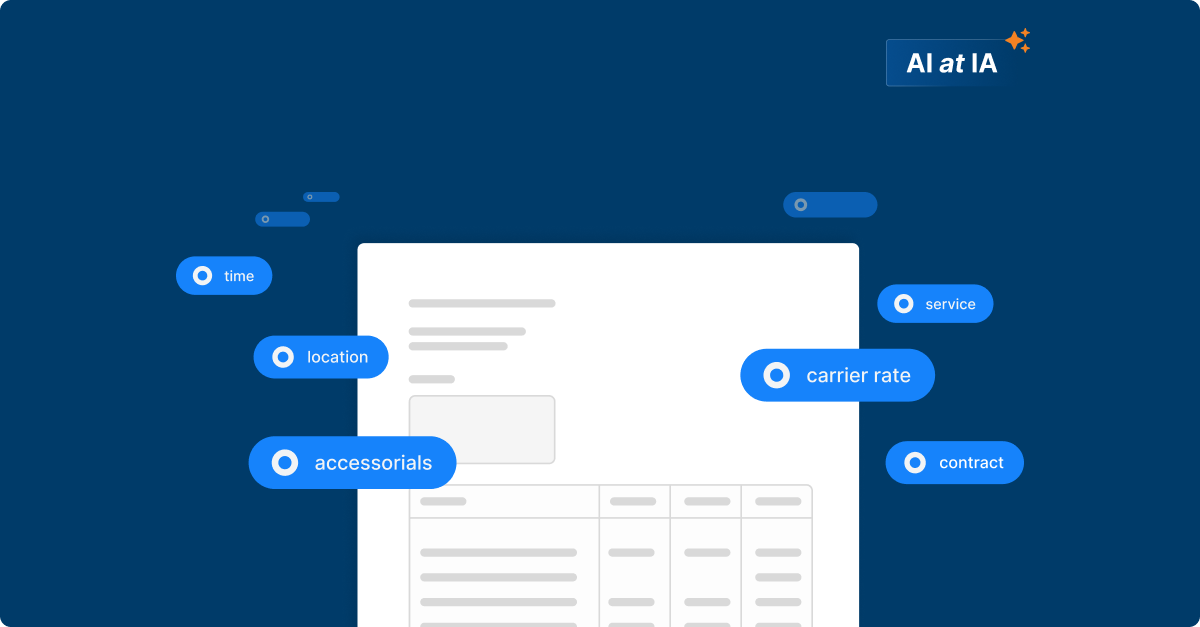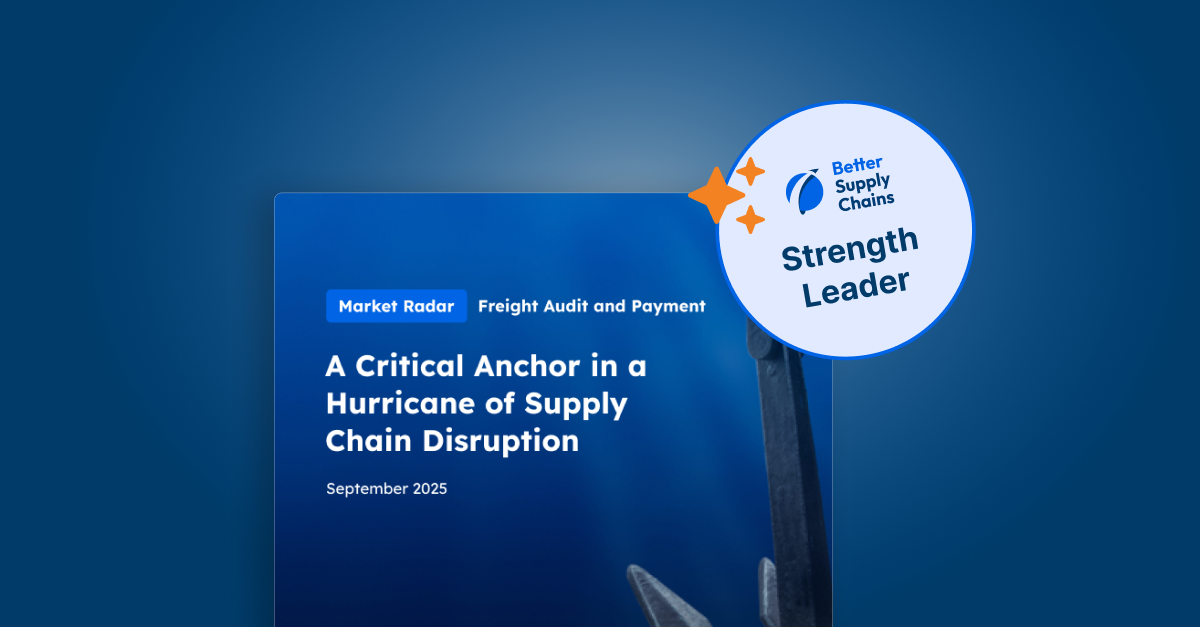From the Ground Up: Tackling Supply Chain Costs with Intelligent Audit’s Accounting Tools

The business world changes in the blink of an eye, but one thing remains clear: the importance of pinching pennies, especially supply chain costs. Picture trying to build a house without a proper blueprint. How long before that house crumbles? Similarly, logistics businesses without clear financial strategies are like buildings waiting to topple. But it's within these challenges that robust accounting practices become the blueprint or foundational blocks to ensure stability and growth.
In this age of digital transformation, accounting is experiencing a renaissance akin to the leap from letters to instant messaging. Those cumbersome ledgers and sprawling spreadsheets? They're as outdated as rotary phones. Today's tech equips us with real-time insights and precision tools, eliminating the guesswork from financial management. Freight audit companies like Intelligent Audit are at the forefront of this shift, and we’ll show how their ability to blend technology and accounting expertise can craft a renewed financial narrative.
Rethinking Traditional Accounting in the Logistics Sector
Managing supply chain costs is almost like threading a needle in a gust of wind—requiring precision amidst chaos. Traditional accounting has long been the needle, yet as the industry evolves, it's evident that the old methods and tools no longer suffice.
Challenges Faced by Traditional Accounting in Logistics
First, consider some of the common challenges faced by traditional accounting in the logistics sector:
- Outdated Software: Many companies still use old software, incapable of processing increasing data loads or providing timely insights.
- Silos and Visibility Issues: Fragmented data and limited visibility complicate reporting and decision-making, especially when tracking orders and ensuring timely deliveries amid multicarrier handoffs or border delays.
- Regulatory Hurdles: Compliance with varied regulations adds layers of administrative challenges.
- Evolving Customer Expectations: Customers demand transparency and real-time updates, pushing the need for integrated tracking and accounting systems.
- Tech Implementation Worries: Adopting new technologies presents financial and integration challenges.
Manual Processes and Their Shortcomings
Yet beyond the run-of-the-mill challenges faced by traditional accounting in logistics, the real focus needs to be on the pitfalls of manual processes. Manual data entry can be error-prone and rife with financial discrepancies. In fact, without proper checks, up to 4% of entries might be wrong—that's like making two mistakes in every five entries! An Experian study further shows that no fewer than 95% of businesses have seen poor-quality data undermine their businesses’ performance. But the worst part? These archaic systems often lack real-time data, slowing decisions and customer communication.
The Case for a Modern Accounting Approach in Logistics
If that last section didn’t sell you on the idea of a modern accounting approach in logistics, maybe this one will. The bottom line is this. With the rising demands of today's consumers, there's no room for outdated processes. Plus, when online retailers spend roughly 11% of their sales on logistics, even small efficiency boosts can save big bucks. Moreover, beyond cost savings, modern accounting means better operations and happier customers. And in the cutthroat world of logistics, being efficient sets you apart from the competition. As you grow, things get complicated; modern accounting keeps things clear and risk-free.
Streamlining Financial Workflows with Automation
Imagine a world where the complexities of logistics and supply chain costs seamlessly fall into place. That's the magic of automation. Intelligent Audit is leading this supply chain cost reduction revolution with cutting-edge freight audit software that makes tasks more accurate, faster, and less tedious.
Leveraging Data Analytics for Informed Decision-Making
Accounting today has evolved beyond the traditional ledger books and calculators. It's not just about crunching numbers anymore—it's about interpreting and understanding the stories they tell. With accounting software and technologies like data analytics, it's possible to inspect, cleanse, transform, and model data to cut supply chain costs. The goal is to discover valuable information, draw conclusions, and support decision-making to give us a clearer financial picture. Consider Intelligent Audit as the magnifying glass in making this happen, revealing deeper insights and identifying patterns, trends, and potentially overlooked anomalies.
Enhancing Compliance and Auditing with Advanced Tools
Let's face it: logistics can often seem like a tangled web of rules and checks. However, with Intelligent Audit's comprehensive suite of tools, navigating compliance and auditing becomes much simpler. These tools mitigate potential risks and ensure businesses consistently adhere to industry standards. They reflect the company's deep knowledge of the freight and transportation industry, aiming to offer clients strategic enhancements and cost savings. They also ensure on-time payments, and by sharing real-time and past data with carriers, they build trust and solidify partnerships.
Real-time Reporting and Transparency for Stakeholders
Waiting for data feels like a relic of the past in 2023. Perhaps that’s why real-time reporting in logistics accounting has shifted from being a “luxury”' to a downright “must-have.” Intelligent Audit's suite of solutions caters to this demand, offering stakeholders everything from instantaneous freight audit and recovery to real-time visibility. This real-time information fosters confidence and provides everything needed to make agile, informed decisions that can anticipate challenges, adapt to changes, and capitalize on opportunities as they come.
Wrapping Up: The Blueprint for Modern Logistics Accounting
The rapidly evolving business world underscores the importance of optimizing supply chain costs. As we've explored, maintaining robust financial strategies is akin to having a sturdy blueprint when constructing a house; it's essential for stability and growth. In today's digital age, traditional accounting methods, burdened with outdated software and manual processes, don't cut it. The logistics sector demands a modern approach, one that emphasizes real-time insights, transparency, and agility.
That’s where Intelligent Audit comes into play. Offering a suite of solutions, from real-time reporting to predictive analytics, they're revolutionizing how businesses manage their supply chain cost reduction. Services such as freight audit, machine learning, and business intelligence further showcase Intelligent Audit's prowess in melding technology with financial expertise.
So, for businesses seeking to stay ahead in the logistics sector, consider partnering with Intelligent Audit as the way forward. Get started today to see why.



